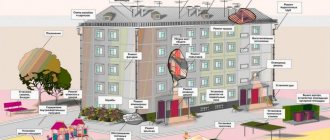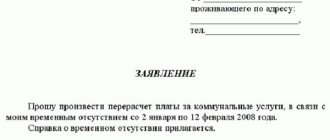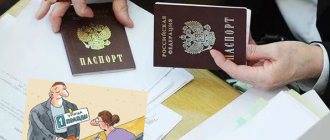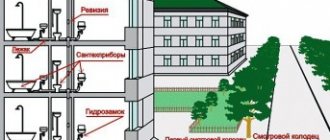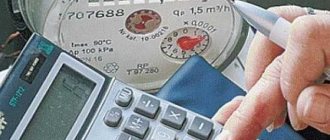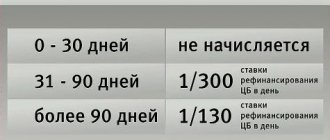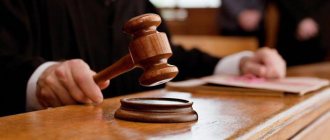What is included in payment for housing and utilities?
The procedure for using residential property and paying for it is regulated by the norms of the Russian Federation. In particular, Art. 154 section 7 of this document reveals in detail the question of what the owners and residents of the apartment must pay for. So, the main expense items:
- maintenance of housing stock,
- public utilities,
- major renovation (for owners) or rental (for tenants).
The fee for maintaining residential premises includes the following expenses:
- home management services,
- maintaining common property in proper condition (corridors, etc.),
- payment for utility resources used for this purpose,
- payment for common devices installed at the discretion of residents (for example, intercom).
Utility bills also include payments for gas, electricity, heat, hot and cold water, sewage, and solid waste removal.
Is it possible to live in a room where no one is registered?
Many owners have a question about whether it is legal to live in so-called “zero” real estate (this is what is commonly called housing where no one is registered according to documents) and, in general, whether no one can be registered in the apartment.
Housing could, for example, be inherited from a deceased grandmother and the heirs must wait six months until they can register ownership and become the legal owners. Another option: the bride and groom each have their own living space, but after the wedding, naturally, they want to move into one apartment. The second remains empty, waiting for future children.
Since in these cases the owners live at a different address, they have the right not to register anyone in the apartment.
In any of these cases, “zero” registration of housing space is legal, because regulations do not provide for any sanctions for owners of apartments in which no one is registered.
In the case of living in a room without registration, everything also remains within the norm. If the owner has an alternative address where permanent registration has been registered, then he can live quietly in a “zero” apartment for 3 months. Only if the specified deadlines are exceeded, he is obliged to issue temporary registration.
Thus, in the law we find a positive answer to the question of whether it is possible to live in an apartment where no one is registered.
Features of calculations
It is necessary to take into account that registered residents and citizens who live in the apartment are legally completely different concepts. State bodies in their calculations are guided exclusively by documented information, and this is registration. So, if two people live in an apartment, but four are registered, you will have to pay for four. If there are four people living, but one person is registered or no one is registered at all, you will need to pay for one.
In addition, for each region in Russia, its own tariffs for utility services are established and approved, but no one is exempt from the obligation to pay them. As an exception, some categories of the population may be provided with tariff benefits, but this is also individual for each region. Of course, the owner of an apartment in which no one is registered can also enjoy such benefits, if he belongs to the beneficiaries.
Based on the above, you can see that there is no single answer to the amount of payment for utility services and cannot exist, since a lot of nuances are taken into account when calculating payments.
Peculiarities of charging for an apartment where no one is registered
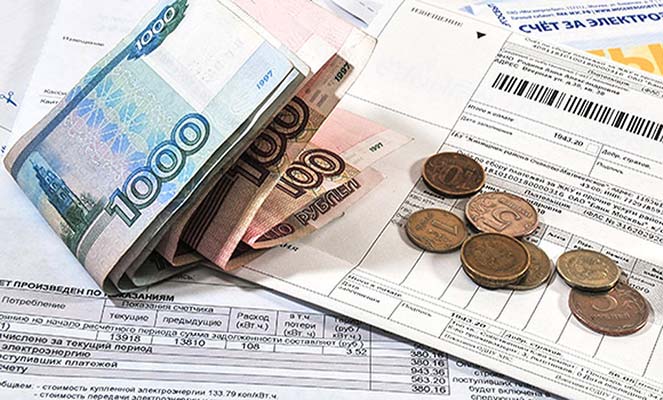
Apartment owners and residents need to pay for a range of utilities. The calculation algorithm and the amounts in receipts depend on several key factors:
- housing area,
- number of registered
- number of owners,
- regional tariffs,
- type of settlement,
- Availability of meters for metering consumed resources.
For example, utility bills for heating, if no one is registered in the apartment, are calculated based on the area of the housing. It is logical that the more spacious it is, the higher the amounts will be, because heating an apartment is much more difficult than heating a cramped room in a communal apartment.
Mandatory payments, which depend on the area of the premises, and not on the number of registered residents or owners, include:
- house maintenance,
- major repairs (for owners),
- rental of property (for tenants),
- heating (in the absence of a heat meter).
Other aspects of how rent is calculated if no one is registered are related to the number of owners and the availability of metering devices.
From January 1, 2020, changes were made to the Decree of the Government of the Russian Federation (No. 354 of May 6, 2011).
According to the innovations, if there are no metering devices, then utility bills in the absence of registered ones are calculated according to the number of owners.
That is, if the “nulevka” belongs in equal shares to 3 grandchildren of a deceased grandmother, then the amount for water consumption will be calculated for the three of them. Until January 1, 2017, no fees were charged at all.
According to the number of owners or registered people, payments are calculated for:
- electricity,
- gas,
- hot and cold water;
- waste disposal,
- garbage removal.
This is an option for calculating rent in the absence of metering devices (except for the removal of solid waste and drains). We see that today the situation for owners is extremely unfavorable. In this way, the state pushes owners to install meters.
Advantages of paying for services based on meter readings
The main advantage of utility consumption metering devices is that they help avoid charging fees according to standards. Thus, the standard consumption of cold water supply per person per month is 6.935 m3. If it is possible to install a meter, but the owners do not want to do this, an increasing factor of 1.5 will also be applied.
Thus, for three brothers who own an apartment in equal shares, for example, in Voronezh, the monthly payment for water will be 775 rubles.
If you install a meter, then in the absence of readings (if no one lives in the apartment), charges, of course, are not made.
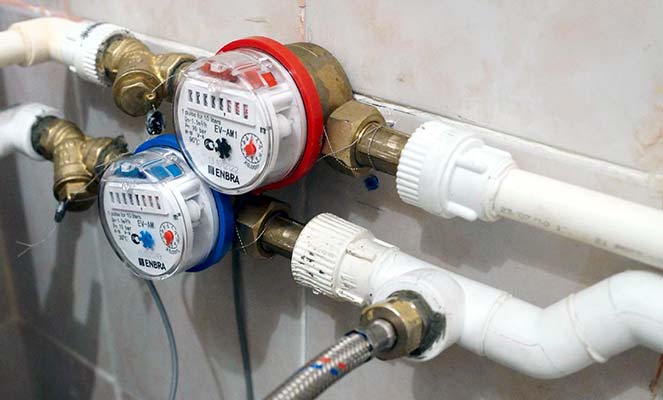
After such simple calculations, it is clear that the meter helps save money. Even if you temporarily register at zero or register relatives, you will only have to pay for the water actually used without any additional coefficients. With proper, rational use of the resource, the amount in payment documents can be reduced threefold.
Similarly, with individual metering devices (IMU), you will be able to pay less for electricity, gas, and hot water. From the date of sealing of the IPU by the service provider company or a representative of the management company, the owners pay only for what they actually used.
If there are no meters
For various reasons, owners cannot or do not want to install metering devices. In such cases, if the apartment is owned, but no one is registered or living there, they should contact the management company or directly the service provider. You must first collect documents confirming that the property is empty, for example:
- certificate of registration at another address;
- travel and business documents,
- copies of hotel receipts,
- certificate of stay in hospital treatment and the like.
With such a package of papers, you can try to prove the fact of temporary absence from the address and make at least a small recalculation of the amount for the apartment.
Are counters always profitable?
Owners install individual metering devices in order to bear costs only for actually consumed resources. But this is not always economical.
Calculation of rent for water, if no one is registered in the apartment and there is no IPU, occurs according to the number of owners. Even when there is only one, but in fact there is a family of 5 consumers. In this case, it is profitable to pay the bill, which indicates the standard per person.
When 5-9 residents are registered, but in fact there are 1-2 of them, you can’t do without counting devices. They will help you save significantly, because it is easier to control your own expenses than to prove to the supplying company that the norm is not being spent.
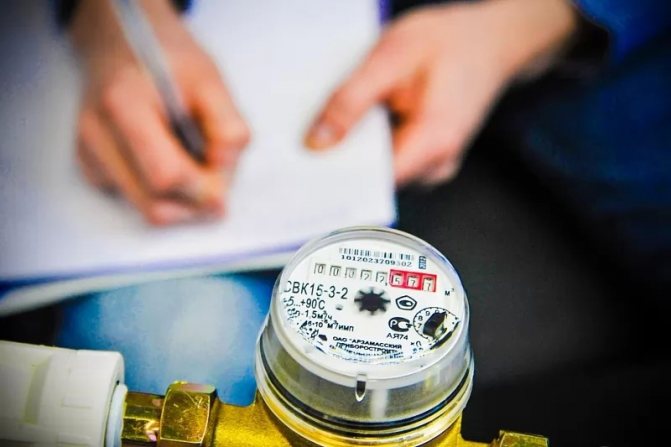
Recalculation of accounts: legal grounds for owners
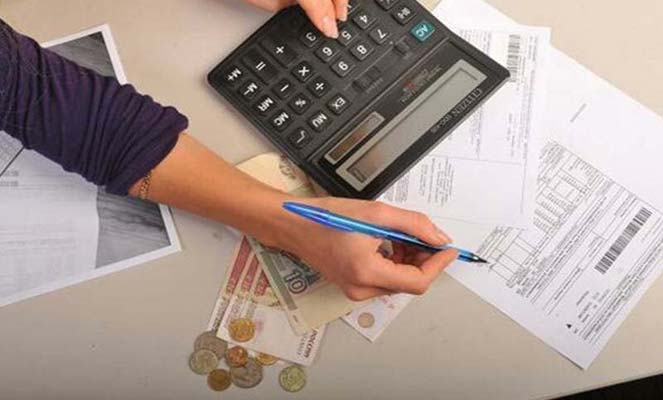
If the owner believes that the rent for an apartment where no one is registered or lives is being charged unlawfully, he has the right to appeal the charges to the management company. The basis for recalculation may be accruals in the following cases:
- actual absence from the address for more than 5 days;
- there is only one owner, but the receipt indicates several actual residents (allegedly, according to the certificate of the building manager);
- When the metering device is put into operation, the amount according to the standards and other similar situations is calculated.
To resolve the issue of how utilities are paid if no one is registered in the apartment, but the bill is higher than expected, the owner needs to provide the following documents:
- application in free form;
- owner's identity card and title papers for the apartment,
- certificates confirming actual absence from the office,
- extracts from the actual place of residence: extract from the house register,
- certificate of family composition,
- certificates confirming the absence of debts on payments to another address and others.
The accounting department is given a period of 5 days to review the package of papers.
FAQ
How can I prevent people from receiving receipts for an apartment where they don’t live?
If you do not live in an apartment, but at the same time regularly pay for the services supplied, it is possible to recalculate. To do this, submit an application to the management company, attach paid receipts and a certificate stating that you do not currently live in this territory.
The management company said that for apartments where no one is registered, a special tariff for payment of services has been established. This is true?
There is no difference in tariffs whether someone lives on the territory or not. Only the submitted meter readings are of fundamental importance. But if there are none and there is no notification that users have left the territory, then a special formula is applied. Perhaps this is your case. If the housing department mentioned to you in passing about a special tariff, clarify what they meant, maybe you were the one who misunderstood them. They continue to insist - ask them to refer to the normative act, because they have something to justify their arguments. If no one lives on the territory, and therefore no one consumes anything, there should be no charges.
Is it possible not to pay bills if the charges are incorrect?
Many owners are tempted not to pay rent at all if no one is registered, and the legality of the application for recalculation is still being considered.
This option without financial consequences is only possible for a month - it is during this period that amounts in receipts are not considered debt. From the 31st day the penalty begins to accrue.
In the first 3 months the penalty is minimal, but after 90 days it increases significantly.
Thus, it is not recommended for owners to ignore payments for electricity, heating, solid waste removal and wastewater disposal, house maintenance, major repairs, and not pay for gas in the absence of registered tenants. This is fraught with fines. Instead, it is more advisable to install an IPU and pay for housing and communal services on time.
Read more about how housing and communal services debt is formed and what consequences it has.
If no one is registered in the apartment, how to pay for utilities
An interesting situation, from a legal point of view, occurs when no one is registered in a municipal or privatized apartment. In fact, the owners may be registered at a different address. How to pay in this case?
If the apartment has meters for electricity, gas and water, and the monthly consumption of resources is zero, there is no need to pay for them. However, you should visit the service provider's office in advance and warn that no one lives in the property. This ensures that there are no problems with taking readings and charging payments based on average data.
In the event that there is no meter for any resource, and there are no registered citizens in the apartment, you will have to pay for one person according to the standard. The actual presence of residents does not matter here. It is not possible to reduce the payment to zero.
Example . Kozlova A.I. owns a one-room apartment in which no one is registered. Payment for electricity and gas is carried out according to meters, water - according to the standard. Every month, a citizen must pay in full receipts for rent, major repairs, heating and water supply.
Despite the absence of citizens registered in the apartment, payment for heating, major repairs and rent must be made in full. It doesn’t matter whether someone lives in it or not. These services are calculated based on the total area of the premises. It is impossible to refuse them.
Registration of a housing subsidy in the absence of registered tenants
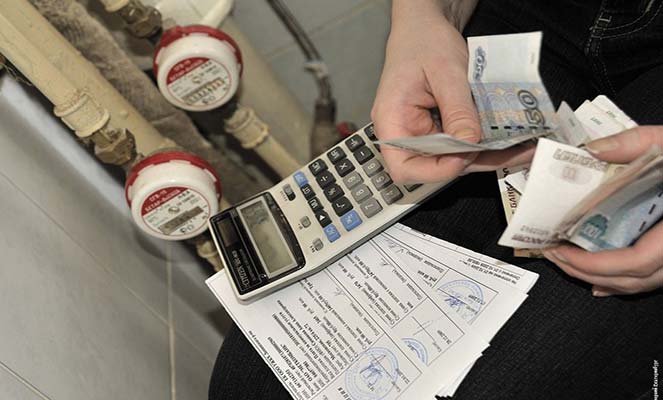
To save on utility bills, many residents are trying to take advantage of government programs to support low-income citizens. The question of whether it is possible to apply for a subsidy if no one is registered in the apartment is becoming increasingly relevant due to the increase in tariffs, changes in the rules for charging receipts and calculating penalties.
The grounds and procedure for calculating state aid are determined by Art. 159 of the Housing Code of the Russian Federation, as well as the provision of subsidies developed on its basis for the payment of residential premises and utilities (approved by Decree of the Government of the Russian Federation No. 761 of December 14, 2005).
In 2020, assistance can be received by families whose utility bills exceed 22% of the total income of all household members (this figure varies depending on the region), as well as persons in preferential categories - pensioners, large families and the like. You must be a citizen of the Russian Federation and not have debts for utilities as of the current date.
Regarding the right to apply for a subsidy for housing where no one is registered, the Code and Rules contain two points:
- clause 2 art. 159 of the Housing Code, which states that “owners of residential premises” are among the persons entitled to state assistance. It doesn’t matter whether the citizen is the owner of the privatized apartment or whether he inherited it;
- Clause 8 of the Rules, which provides a list of papers for obtaining benefits. It states here that the applicant must provide title documents for the housing “in which he is registered at his place of permanent residence.” That is, you must be registered in the apartment.
Thus, it is problematic to obtain a subsidy for zero.
Housing without registered citizens
If no one is registered in the apartment, this directly affects the payment of utilities. At the same time, whether you live there or not is not important. When the apartment does not have meters or there are types of services for which it is not installed, payment will be made based on the calculation for one person. That is, the owner of the property may not expect that he will not have to pay, even if no one really lives in the apartment and no one uses utilities. Therefore, meters in this case are very advisable, since thanks to them the rent will be significantly lower.
When not a single person is registered in the existing property, that is, no one lives there, even if this is not actually the case, the owner will have to pay the established rates for one person. If there is a meter and, according to its readings, the resource was not used, then you do not need to pay. However, meters are not installed for all types of utilities, so it will not be possible to completely free yourself from payments.
Moreover, if it is not the owner himself who lives in the apartment, but someone else, the obligation to pay the bills still lies with him.
Registering a child in a “zero” apartment
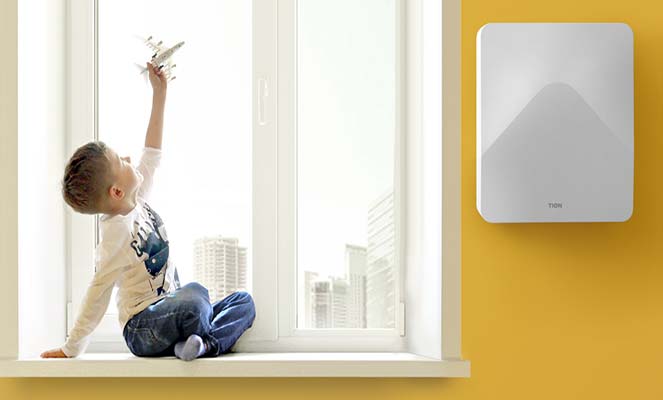
According to Art. 20, the place of residence of a Russian minor must be the place of residence of his legal representatives
- parents,
- guardians,
- trustees.
Therefore, in order to register a child in an apartment where no one is registered, you must first (or simultaneously) register his mother or father at this address.
